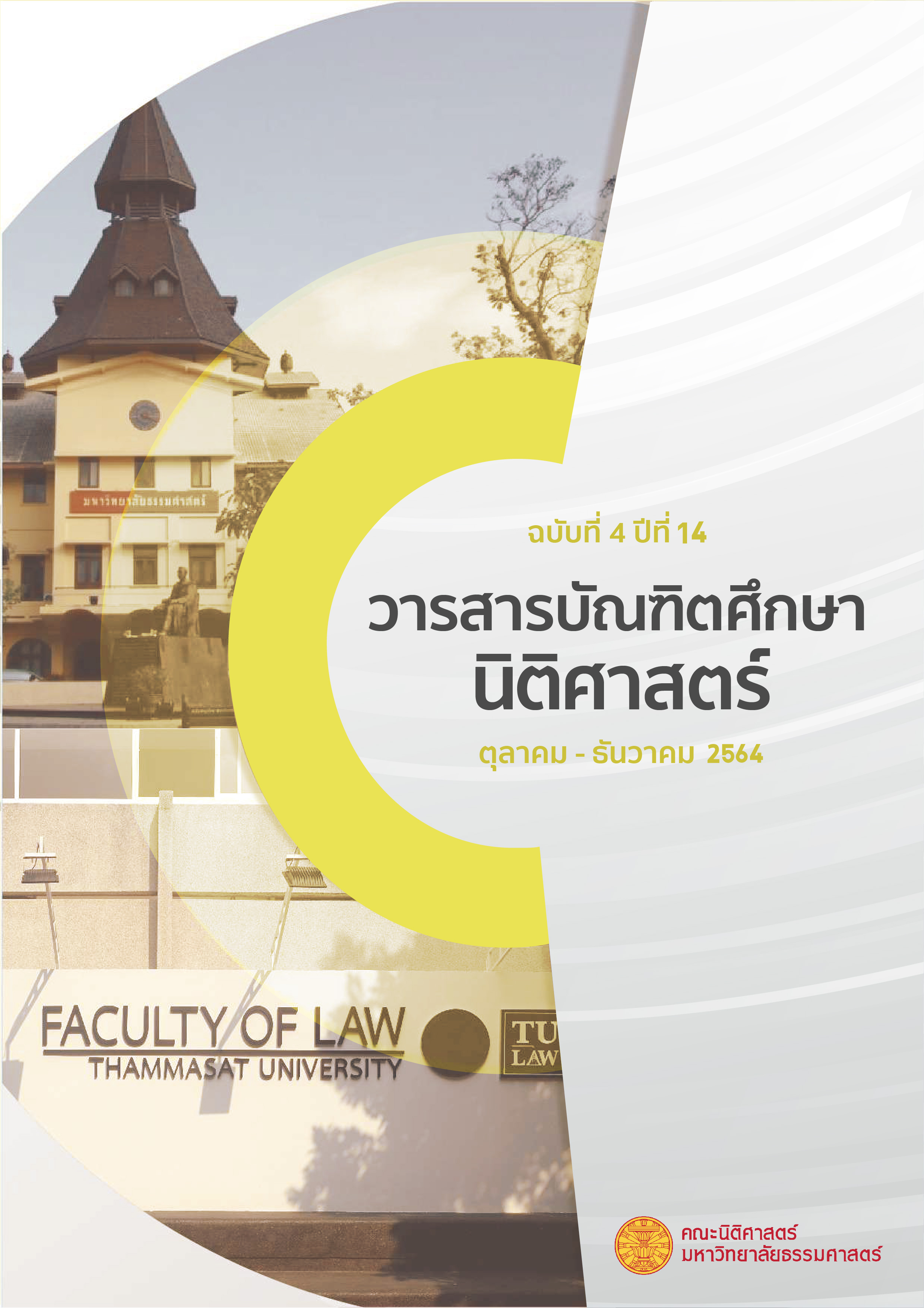ปัญหากฎหมายเกี่ยวกับการออกสลากออมสิน
คำสำคัญ:
สลากออมสิน, ตราสารเปลี่ยนมือ, ลายมือชื่อปลอม, หลักประกันการชำระหนี้, อายุความฟ้องร้อง, ฟอกเงินบทคัดย่อ
สลากออมสินออกโดยอาศัยอำนาจตามพระราชบัญญัติธนาคารออมสิน พ.ศ. 2489 มาตรา 7 (2) ซึ่งบัญญัติให้จัดตั้งธนาคารออมสินเพื่อประกอบธุรกิจออกสลากออมสิน และยังมีการออกกฎกระทรวงว่าด้วยการรับฝากเงินประเภทสลากออมสินพิเศษ พ.ศ. 2547 เป็นกฎหมายลำดับรอง ซึ่งข้อ 2 แห่งกฎกระทรวงฉบับดังกล่าวได้กำหนดคำนิยามของ “สลากออมสิน” หมายความว่า หนังสือตราสารที่ธนาคารออมสินออกให้แก่ผู้ฝาก โดยมีข้อสัญญาว่า ถ้าหนังสือตราสารนั้นมีเลขหมายถูกเลขสลากจ่ายคืน ธนาคารออมสินจะจ่ายเงินให้แก่ผู้ฝากเป็นจำนวนเงินตามที่กำหนดไว้ และเมื่อตราสารนั้นครบกำหนดอายุธนาคารออมสินจะจ่ายเงินต้นคืนพร้อมดอกเบี้ย (ถ้ามี) ให้แก่ผู้ฝาก และข้อ 4 ได้กำหนดให้ผู้ฝากมีสิทธิโอนกรรมสิทธิ์ในสลากออมสินให้แก่บุคคลอื่นได้ จากลักษณะดังกล่าวข้างต้น มีผลทำให้สลากออมสินมีลักษณะเป็นตราสารเปลี่ยนมือ ซึ่งในความเป็นตราสารเปลี่ยนมือนั้น จะเข้าสู่หลักกฎหมายที่ว่า “การคุ้มครองผู้รับโอนโดยสุจริต” กล่าวคือ หากผู้รับโอนมิได้รู้ถึงความบกพร่องในสิทธิของผู้โอนแล้ว ผู้รับโอนย่อมได้รับความคุ้มครองในตราสารเปลี่ยนมือ ซึ่งหลักกฎหมายดังกล่าวเป็นข้อยกเว้นของหลักกฎหมายทั่วไปที่ว่า “ผู้รับโอนไม่มีสิทธิดีกว่าผู้โอน”
อย่างไรก็ตามกฎหมายที่เกี่ยวกับการออกสลากออมสินดังกล่าว ยังขาดความชัดเจนอยู่ในหลายเรื่องซึ่งเป็นปัญหาที่กระทบต่อการออกและการใช้สลากออมสินอย่างมีนัยสำคัญ จึงนำมาสู่การศึกษาวิทยานิพนธ์ฉบับนี้ ดังต่อไปนี้ กรณีปัญหาที่หนึ่ง ปัญหากรณีสลากออมสินหายหรือถูกลักไป ระหว่างเจ้าของเดิมกับผู้รับโอนสลากออมสินมาโดยสุจริต ใครจะมีสิทธิดีกว่ากัน กรณีปัญหาที่สอง ปัญหาการนำสลากออมสินไปใช้เป็นหลักประกันการชำระหนี้ กรณีปัญหาที่สาม ปัญหาในเรื่องอายุความฟ้องร้อง กรณีปัญหาที่สี่ ปัญหาการออกสลากออมสินชนิดระบุให้ใช้เงินแก่ผู้ถือสลากออมสินกับกฎหมายฟอกเงิน
ดาวน์โหลด
เผยแพร่แล้ว
ฉบับ
ประเภทบทความ
สัญญาอนุญาต
บทความหรือข้อความคิดเห็นใด ๆ ที่ปรากฏในวารสารบัณฑิตศึกษานิติศาสตร์เป็นความรับผิดชอบของผู้เขียนบทความโดยเฉพาะ คณะนิติศาสตร์ มหาวิทยาลัยธรรมศาสตร์ และกองบรรณาธิการไม่จำเป็นต้องเห็นด้วย



